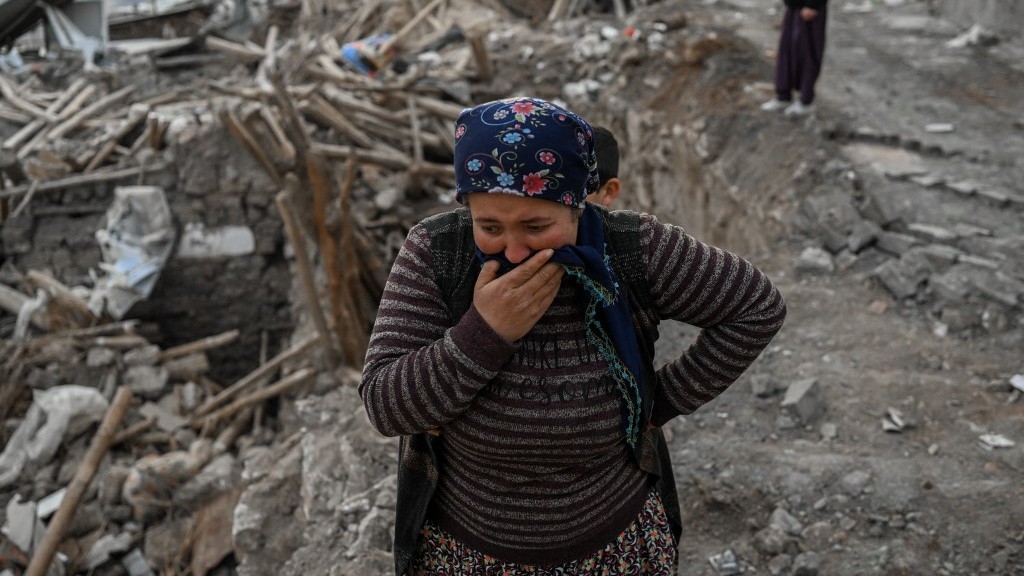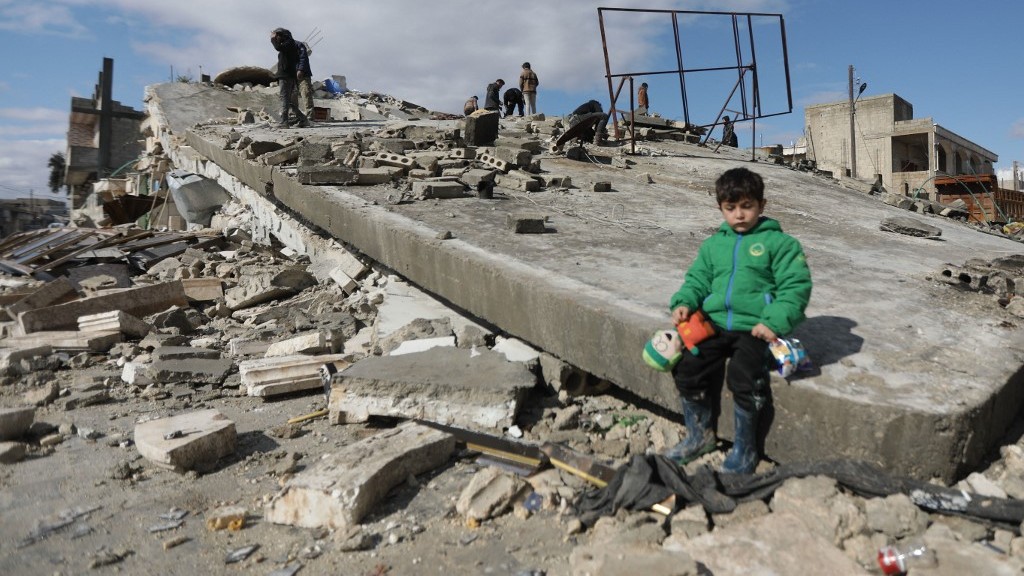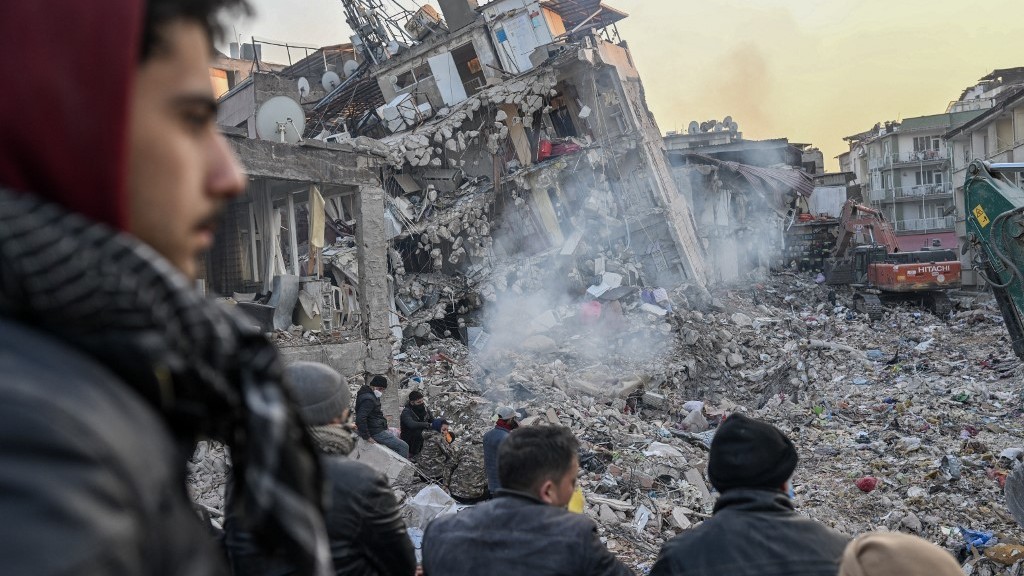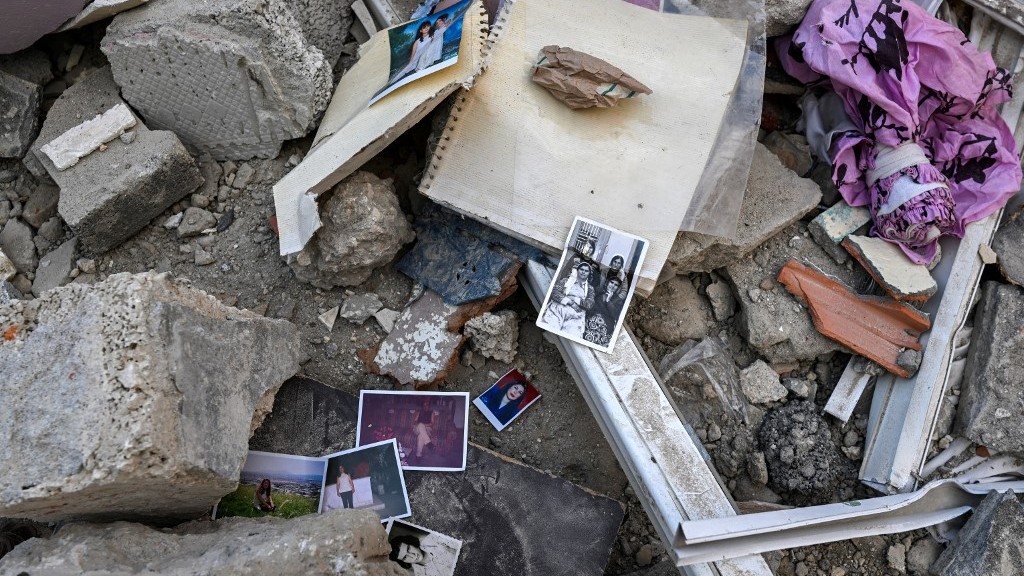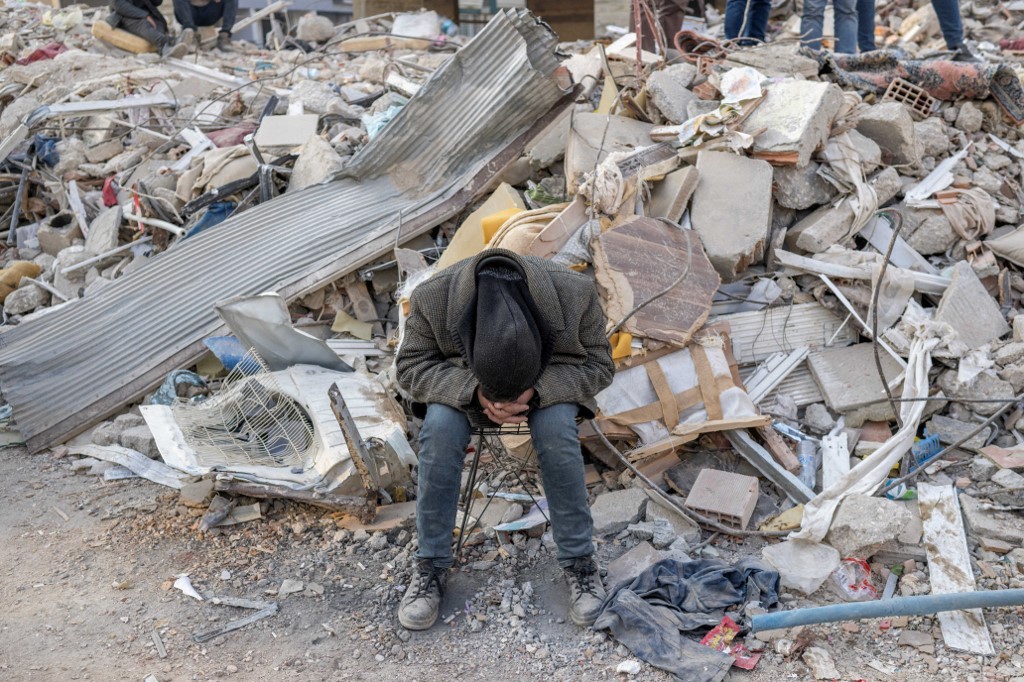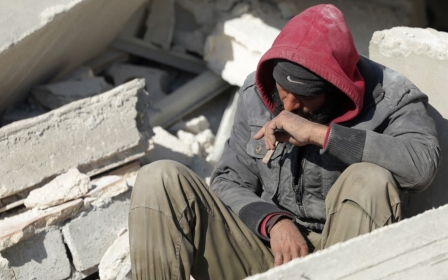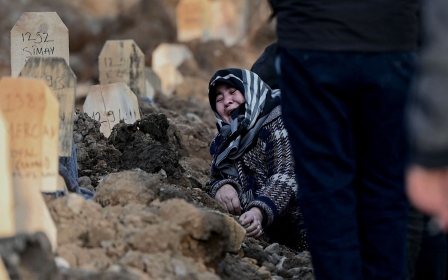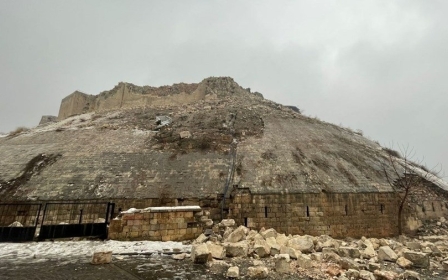Turkey-Syria earthquake: The mental health impact of natural disaster
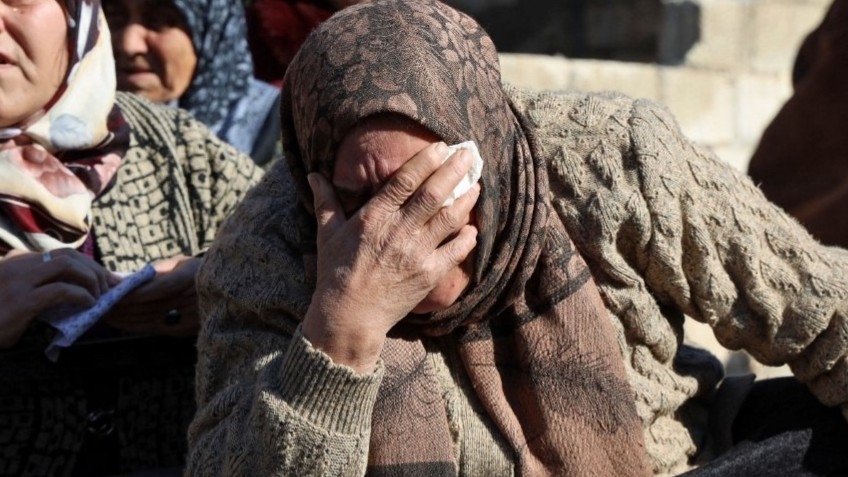
When the 7.8 magnitude earthquake hit Syria and Turkey in early February, the immediate priority for search and rescue teams was to find survivors within the rubble of collapsed buildings.
Today, with the hunt for survivors at an end and a huge rebuilding effort expected to start, those affected by the disaster face a new challenge, namely how to move on with life and adjust to a new normal without their family members, friends and homes.
Psychologists warn that addressing the mental scars caused by the earthquakes should be an urgent priority and that the most severe mental health consequences might not be fully apparent so soon after the tragedy.
Middle East Eye spoke to several mental health professionals about the hidden impacts of the earthquake.
1. How do natural disasters impact those already suffering from trauma?
More than 50,000 people were killed in the earthquakes and tens of thousands of survivors have no possessions and no permanent place to stay.
According to Dr Rania Awaad, a clinical psychiatrist at the Stanford University School of Medicine, those particularly affected include Syrian refugees in Turkey and displaced Syrians living in rebel-held territory in northern Syria, as the earthquake is the latest in the long line of traumas for them.
“What you see here is a multi-layered trauma, a complex situation where people have been displaced multiple times over,” she told Middle East Eye.
“In our current support group that I was running here on campus, we have a number of people who have family directly in that region. One of the members was saying that this is their twentieth displacement,” she added.
When people experience traumatic events involving death and destruction over and over, it becomes a complex trauma, Awaad explained. “This is where regaining safety or even knowing what normalcy is becomes skewed."
Survivors will feel disillusionment and distrust, and for children, these feelings can lead to long-term mental health problems that follow them into adolescence and even adulthood.
Awaad notes that many survivors were often recording saying “Alhamdulillah” (praise be to God), something she says highlights the power of having faith in devastating situations.
The subject of religious faith after traumatic events is something strongly debated amongst psychologists; with some recording disillusionment with the idea of God and others noting that survivors draw strength from religion.
2. How are children affected?
Disasters such as earthquakes can have a number of effects on children, including anxiety, sleep deprivation, feelings of fear, as well as changes in behaviour and attitude.
While these are psychological issues, they can have an impact on the physical growth of a child and even speed up normal biological processes.
For example, Chinese researchers investigating the impact of earthquakes on children in their country found that both girls and boys experienced an early onset of puberty in the aftermath of an earthquake.
They cited possible exposure to contaminant chemicals, as well as mental stress as possible drivers of the effect.
“Children are especially vulnerable when it comes to these types of situations. Because their bodies are still growing and are not as strong as most adults, it’s essential to realise the physical effects disasters can have on them,” Maaria Mahmood, the director of the UK-based Muslim Youth Helpline told Middle East Eye.
According to Mahmood, if not treated early on, children can suffer from long-term social, emotional and physical complications.
3. What are the signs of mental health issues following a disaster?
Both children and adults may have visible signs of mental trauma following natural disasters that manifest both physically and psychologically.
“The red flags are things like not sleeping well, having nightmares, physical symptoms like heart pounding or feeling queasy or nauseous," explains Awaad.
"Many might experience an upset stomach, especially if they are internalising it and not speaking about it," she added.
Other signs of trauma include feeling easily startled or frightened, having trouble concentrating, not being able to enjoy previously fun activities, and becoming irritable or angry.
'The longer you take to treat something, the longer it's going to take to treat it'
- Dr Rania Awaad, clinical psychiatrist
Awaad says recognising these signs early on is important so that a diagnosis can be made and appropriate treatment offered.
She further warns that some people will mistake "coping" with psychological issues for having dealt with them properly.
By not addressing problems when they first appear, people risk simply kicking the can down the road and having problems further down the line.
“What happens is the trauma will live right under the surface. And so a person goes on in their life thinking ‘ok I’m over this’ through their job, marriage and kids, and then later on in life something will trigger their memory and it will cause trauma,” she said.
Trauma can be triggered by anything, from conversations to news or memories.
“This is why we say the longer you take to treat something, the longer it’s going to take to treat it.”
4. How quickly should mental health treatment be given?
Most mental health specialists and psychiatrists believe those affected by disasters should receive help as soon as possible after the event.
“The quicker the better,” said Awaad, who acknowledged that in the wake of a natural disaster it may be difficult to get psychological support, because the immediate priority is rescuing people and providing for other primary needs.
Awaad calls psychological trauma an "invisible wound" that can be perpetuated if not treated. For some, not addressing psychological wounds means never being able to return to a sense of normalcy.
She also highlights the importance of recognising compounded trauma, which is when someone who has suffered from previous traumas in their life experiences more major traumas.
“When the current trauma adds to previous ones…it can push you over the edge. That’s one theory about (Post-Traumatic Stress Syndrome) in this field,” she says.
5. How will this earthquake affect people living away from the region?
Since the earthquake struck, social media has been flooded with videos and photos from the affected area.
Social media platforms such as Instagram and TikTok offer an endless scroll of content and are used by people to stay on top of the latest developments.
'Hearing about or seeing these events unfold in the news can bring up many difficult feelings'
- Jess D’Cruz, Mind
Experts say that being exposed to these images can take a toll despite the viewers not being physically affected by the earthquake themselves.
“Hearing about or seeing these events unfold in the news can bring up many difficult feelings,” said Jess D’Cruz, the information content manager at Mind, a UK-based mental health charity.
“We may be very anxious or worried if people we know are affected. And depending on our own experiences, news like this could remind us of previous traumatic events that we’ve gone through,” she added.
Awaad, who has been running support sessions at Stanford University, says she has come across a number of cases where people have been glued to their phones, trying to get the latest updates about the earthquake, with some unable to sleep or eat, awaiting news on their relatives.
“This is a different type of trauma. It’s constant and doesn’t end, as long as you have wi-fi, you can be watching the news 24/7,” she says.
People watching natural disasters unfold might start to feel overwhelmed and powerless, which can further heighten feelings of anxiety as they find it difficult to switch off from the news.
“If you’re experiencing any of these difficult feelings, it might help to think about setting some boundaries around your news intake. For example, you could try to only look at the news or social media at a certain time of day, for a set amount of time,” D’Cruz said.
“You could also talk to someone you trust about how you’re feeling, such as a friend or family member – they may be feeling similarly, and this could help you feel heard,” she added.
Awaad also suggests unplugging from social media at certain times, to process emotions and avoid letting negative feelings affect those around you.
While it is normal to feel upset while watching the news, experts say that prolonged feelings of sadness that stops you from enjoying your life may mean that it’s time to speak to a doctor or mental health specialist.
6. What can people do to help those affected mentally by the earthquake?
Like other experts in the field, Mahmood says the best advice for those watching from afar is to only focus on the things you can control, and not feel guilty about not helping.
“There are other ways to support the cause, get involved in other ways and this will help you stay connected,” she says.
'It’s important to speak to the communities which come from these countries and understand the support needed'
- Maaria Mahmood, Muslim Youth Helpline
Understanding that people have different coping mechanisms is also important. While some may want to talk about their feelings, others may choose to not discuss the news as a form of coping.
“Accept that these are distressing times, and it’s ok to feel sad about the events. Be ok with your change in mood, and acknowledge that people will want to grieve in their ways,” says Mahmood.
For those that know anyone that may feel hopeless or distressed by the news, the best thing to do is offer your support.
“It’s important to speak to the communities who come from these countries and understand the support needed,” she adds.
If you are affected by any of the issues raised in this article and want to seek advice or help, please contact Samaritans on freephone 116 123. You can also call the National Suicide Prevention Helpline UK on 0800 689 5652 (6pm–3:30am every day).
Middle East Eye propose une couverture et une analyse indépendantes et incomparables du Moyen-Orient, de l’Afrique du Nord et d’autres régions du monde. Pour en savoir plus sur la reprise de ce contenu et les frais qui s’appliquent, veuillez remplir ce formulaire [en anglais]. Pour en savoir plus sur MEE, cliquez ici [en anglais].


